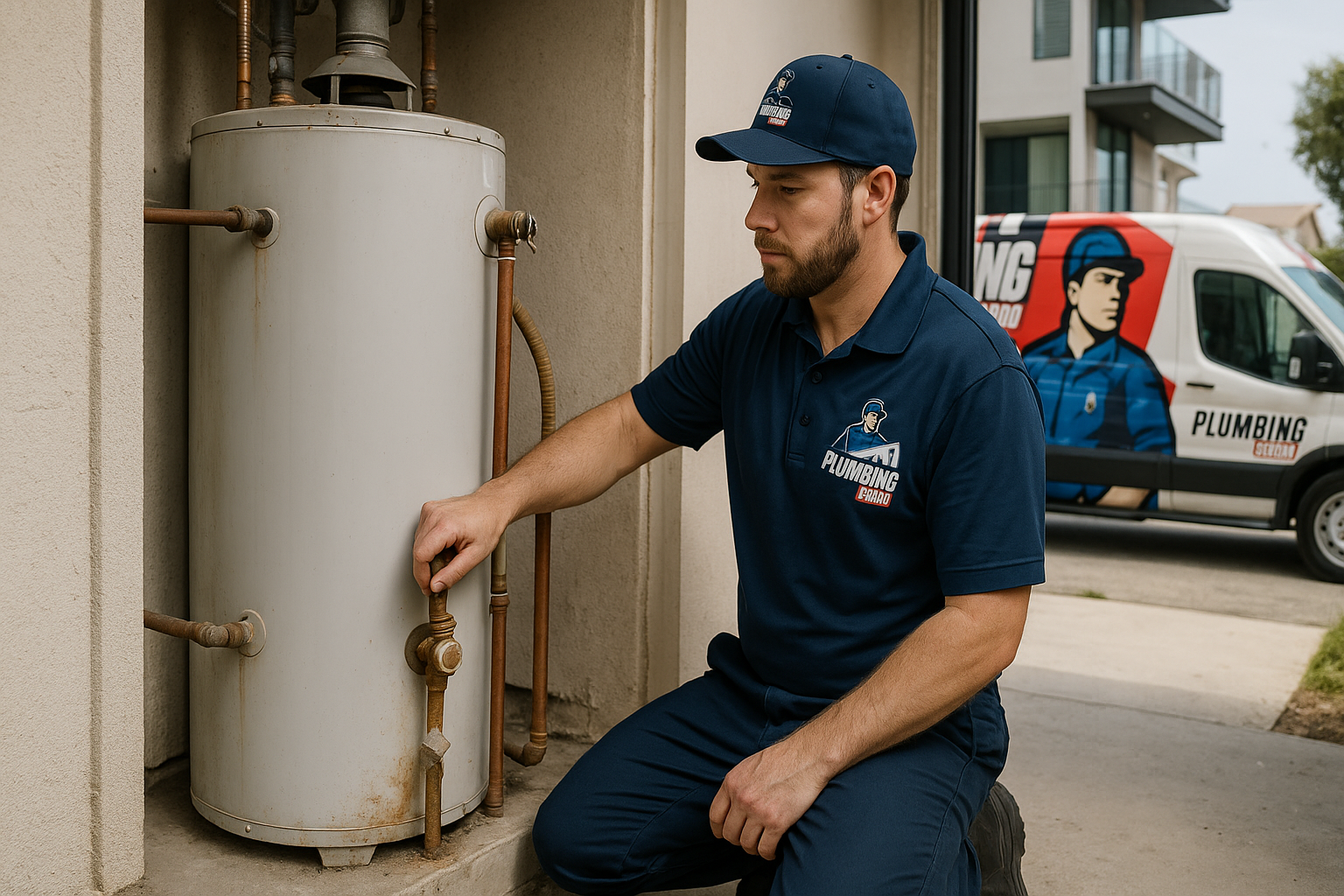How to Know It’s Time for Water Heater Replacement

Water heater replacement: clear signs to watch
If hot showers sputter or water looks cloudy, consider water heater replacement. In the first 100 words, check age, leaks, and performance to decide if repair or replacement makes sense for LA and Orange County homes.
Age, efficiency, and performance clues
- Age: Tank units commonly serve 6–12 years; older models may run but waste energy.
- Efficiency: Rising utility bills or inconsistent temperatures suggest tired components.
- Noise: Rumbling indicates sediment that insulates the burner and reduces capacity.
Leaks and water quality warnings
- Puddles or corrosion at the base point to tank wear that usually isn’t repairable.
- Rust‑tinted or sandy water can mean internal rust or sediment—both reduce output and may hasten failure.
Planning your replacement
- Choose capacity and recovery rate for your household; consider tankless for continuous hot water.
- Replace aging supply lines, add an expansion tank where required, and verify venting or electrical needs.
- Schedule installation to minimize downtime and confirm permit basics with your installer.
When a repair still makes sense
Thermostats, elements, anode rods, or relief valves can sometimes restore performance on younger units. For older tanks with leaks, replacement is the safer bet.
Final word: Match the symptoms to the solution so you’re never surprised by a cold shower again. Ready for help today? Call Plumbing Squad (LA & Orange County).
Key Takeaways
- Understand the essentials of know it’s time for water heater replacement so you can act quickly and avoid damage.
- Use safe, proven methods first; avoid shortcuts that create bigger problems.
- Prevent issues with routine maintenance and timely upgrades.
- Know when to call a professional to save time, money, and stress.
Choosing the Right Water Heater
Match capacity (or flow rate for tankless) to household size and simultaneous hot‑water needs. Consider fuel type, efficiency ratings (UEF), and installation location.
Tank vs. Tankless
- Tank: Lower upfront cost, simpler install; standby heat loss.
- Tankless: Endless hot water, higher efficiency, longer life; higher upfront cost and venting requirements.
Maintenance for Longevity
- Flush tanks annually to reduce sediment.
- Replace anode rods every 3–5 years (water quality dependent).
- Descale tankless units per manufacturer guidelines.
FAQs
How can I prevent know it’s time for water heater replacement?
Start with routine maintenance: inspections, cleaning, and replacing worn parts before they fail. Address small issues early, use quality fixtures, and follow manufacturer guidelines. A yearly whole‑home check by a pro helps catch problems before they turn into know it’s time for water heater replacement.
Can DIY fixes make know it’s time for water heater replacement worse?
Yes. Using the wrong chemical, tool, or technique can damage pipes, fixtures, or finishes, and often pushes the problem deeper. Stick to safe methods and call a pro when you hit resistance, smell sewage, or see leaks.
When should I call a professional plumber for know it’s time for water heater replacement?
Call right away if there’s active leaking, sewage odors, recurring clogs, no hot water, water stains, or you’ve tried basic steps without success. Emergencies include burst pipes, backflows, and any leak near electrical.
How much does it typically cost to address know it’s time for water heater replacement?
Costs vary by scope, materials, access, and location. Expect a basic service call to start around a few hundred dollars, while larger repairs or replacements range higher. After an on‑site assessment, your plumber can provide a firm, written estimate.
Need a Reliable Plumber?
Plumbing Squad handles inspections, repairs, and emergency service with transparent pricing and clean workmanship. Call today or book service to get expert help fast.

